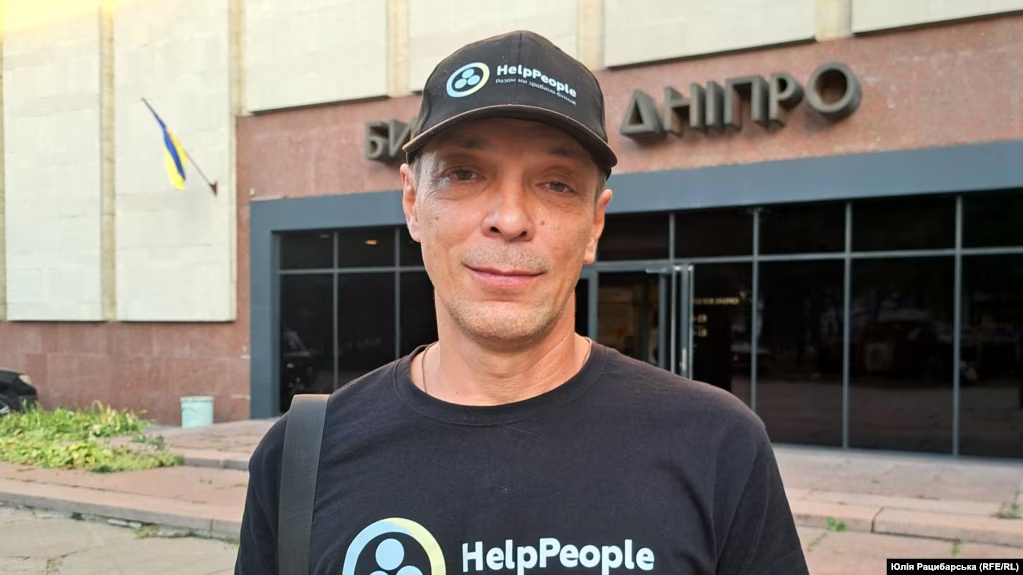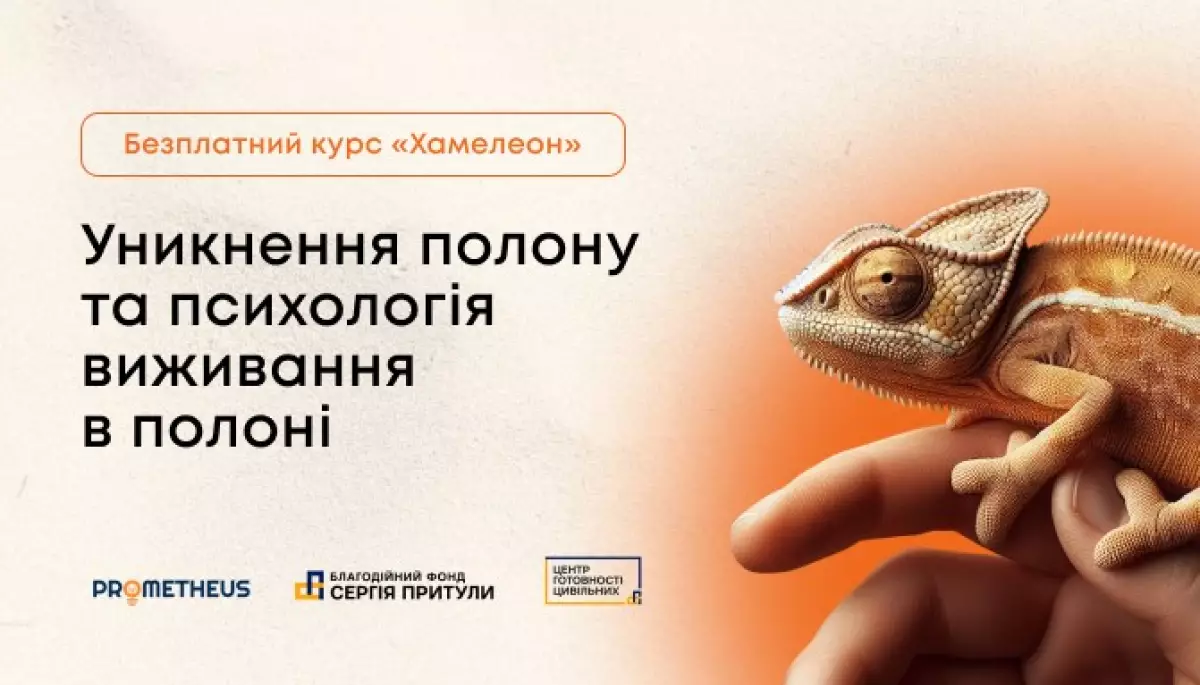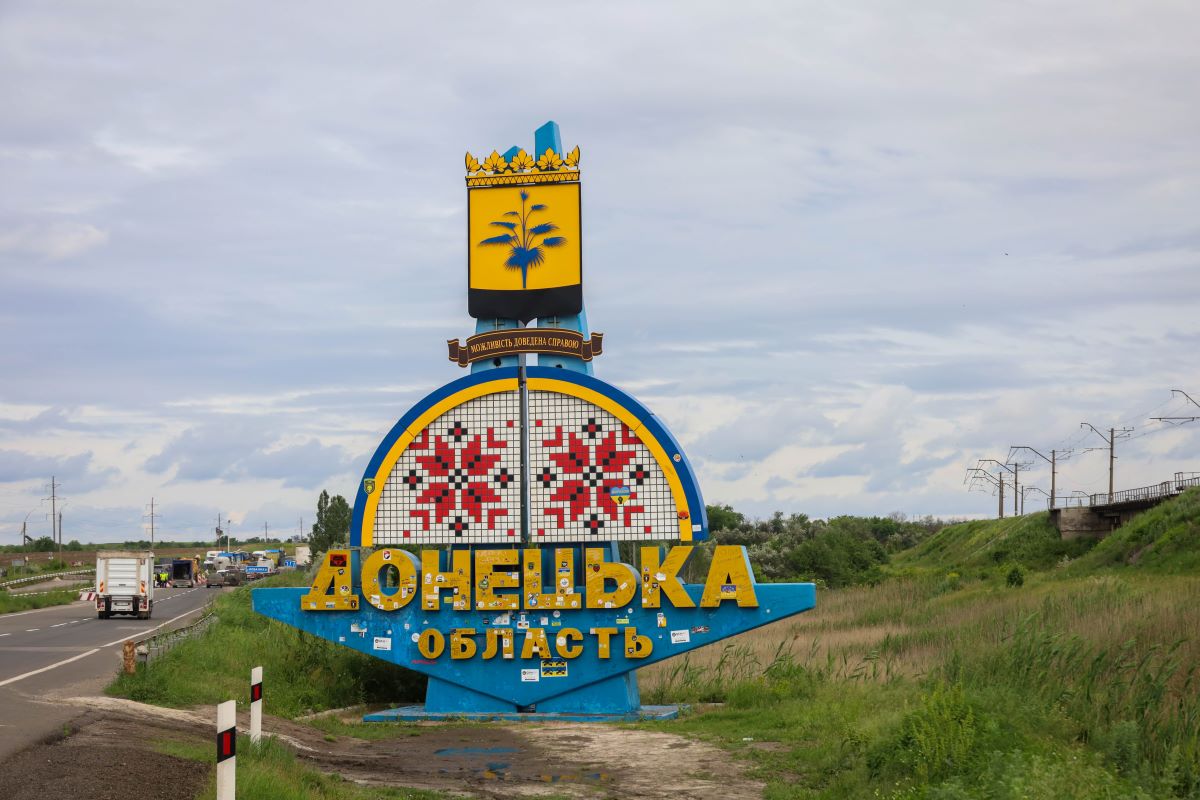
Red Cross doesn't have access to detainees in Non-Ukrainian controlled areas, – Head of the Mission to Ukraine
Head of the Red Cross Mission in Ukraine, Mr. Alain Aeschlimann talks to Hromadske Radio co-founder Andriy Kulykov on what has been done and what remains to be done
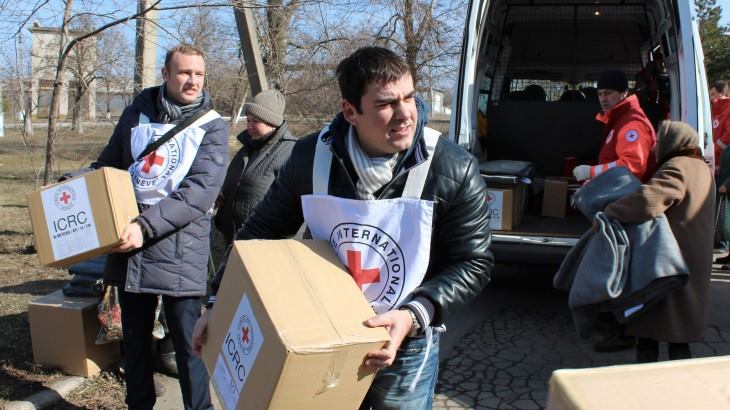
Hello and welcome to this week’s episode of Ukraine Calling. I’m Marta Dyczok for Hromadske Radio in Kyiv. In the summer when many people are thinking about vacations, it’s easy to forget that there’s a humanitarian crisis in Ukraine’s war zone. The International Committee for the Red Cross has been working to alleviate the crisis since it began. This week we’re brining you an interview with the Ukrainian Mission Head, Mr. Alain Aeschlimann, who previously served in Iraq, Israel and Ethiopia. The interview was conducted by Hromadske Radio co-founder Andriy Kulykov.
FEATURE INTERVIEW: RED CROSS MISSION HEAD ALAIN AESCHLIMANN TALKS TO ANDRIY KULYKOV: WHAT HAS BEEN DONE, WHAT REMAINS TO BE DONE?
Kulykov: Three years in Ukraine as Head of the delegation of one of the most respected international organizations. One of the organizations that are symbols of humanitarian attitudes towards each other. What are the major conclusions after three years? What’s been done? And what’s still to be done?
Aeschlimann: When we look at figures, a lot has been done. When we look at results, much more should be done. I mean one characteristic of humanitarian work is that you are never satisfied. Because you always see suffering and you are not able to alleviate it, or to diminish it.
Kulykov: Do you actually see the suffering, Mr. Aeschlimann, or are you being told that people are suffering?
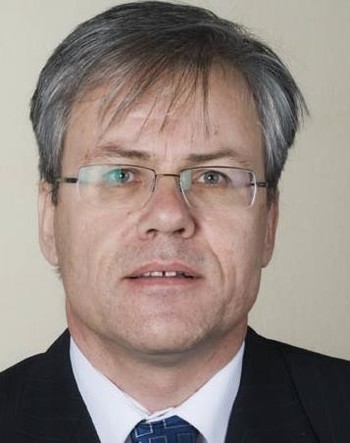
Aeschlimann: I myself am mainly based in the capital and travel to Donets’k and Luhans’k on a rather regular basis but remaining in the cities it is clear that I am not exposed to suffering every day, and there’s a lot of work from my colleagues. For example, last week I was in a village called Dzovanka, which is on the contact line near Mayors’k. And there when you speak to people, when you see their living conditions, when you homes that have been damaged, you see this suffering. When we speak with babushkas at the contact line, after a couple of minutes they start crying. And very often they tell us, it’s not so much what you bring us that is important, but just your presence. To see that we are not forgotten, that the world did not forget this crisis, and that you are coming on a regular basis. So, I would say that this is the commonality of humanitarian work, that you always have the impression that the glass is half empty rather than half full. But at the same time, we have to be aware of challenges. We have to be aware of the importance of needs, but also the importance of achievements. Because, I repeat, a lot has been done over the last three years by us, and also by other organizations. We needed to build a structure from scratch, because the ICRC opened our office in February 2014. Before that we had zero presence, and now we are all over, have 500 staff, around 100 expatriates and 400 Ukrainians. Every day we have about 40 field trips at the contact line, we have huge logistics, we have 5-6 offices with the Headquarters here [in Kyiv]. A lot has been done, built. When we speak about 400 Ukrainian colleagues we need to mention the training which is going on with this, to have people understanding what neutrality means, independence, non-participation in political discussions, etc. So, again, a lot has been done, but we’re always thinking that we must do more.
Kulykov: Compared to other countries, how big is the ICRC operation in Ukraine? Is it a normal size or a bigger size?
Aeschlimann: It’s a big size operation. We are the ninth largest world wide. At the ICRC we are present in around 90 countries around the world. This [Ukraine] is within the 10 largest operations.
Kulykov: When you first came to Ukraine, and I mean the ICRC as a whole, not you personally (but if you want you may also answer from your personal point of view), were you invited? Or did you come on your own initiative and you had to insist that you are present in Ukraine?
Aeschlimann: We can never come on our own. Meaning when there is a problem, our co-mandate is to work in conflicts and areas of violence. So, when a conflict erupts, or violence erupts, we contact authorities, and we propose what we call our services, first to establish an office, and then to start activities. So, we did this here. And then we had an expansion, but always coordinated with the concerned authorities.
Kulykov: Did you have to insist on your presence when you suggested that you would come? Or were the Ukrainian authorities eager to have you? And the people on the other side of the contact line?
Aeschlimann: The Ukrainian context was a bit special for us because we were present here in the past, and we closed our office in 2012. Meaning that we had a headquarter agreement. This facilitated our presence, our coming back. And I think there was a good understanding that we were useful, and we did not have to insist too much on our presence. And then, as the situation developed in a very unexpected way, first with Crimea, then with the east, we managed to expand our presence. And at times there was also support from local persons in charge of different cities.
Kulykov: Mr. Aeschlimann, when you think of the future ahead, and you say that we, or you, should do more, that you always have this feeling. What are the major points, and major fields, that you feel that your participation is needed even more?
Aeschlimann: The first issue I would mention is access to detainees. We have access to the detainees held in Ukraine, by the Ukrainian government. That we would still improve, to make it more systematic, in particular with detainees held by SBU [Ukraine’s Secret Service]. But we are visiting, and this is a positive point. On the other side of the contact line at this stage we do not have access yet. So, we are making a lot of efforts. We have some, I would say, positive prospects, but at this stage this did not take place [access to detainees being held in areas not controlled by the Ukrainian government.] we visited some detainees in the past, but not at the time being. So, this is really one of our main priorities. Then, there are a lot of initiatives that we try to propose to all sides concerned, to act as a neutral intermediary.
Maybe you heard that we made some proposal with regards to facilitating the system of paying pensions for pensioners who cannot move, I mean, being disabled or bed-ridden – so this is also something, maybe – and we are very aware of how complicated it is but maybe we can also be useful. We also proposed different initiatives with regard to the provision of water. When we can act as a neutral intermediary between sides then I think that we can do more. And then, with regard to missing persons, this is also a very important fight where we have been active more or less since the beginning of the conflict, and last week, there was great news on the adoption of the Verkhovna Rada of Ukraine [Parliament] on the Law of the Missing Persons, which I think is a great achievement of the country. There are very few countries, in my mind, that have adopted such a law when the conflict is still going because, very often, it is adopted after the conflict, but it is important to have a system in place, a framework, to deal with this issue. So, this is also something where a lot of still to be done and where we will cooperate with the authorities.
Kulykov: Mr. Aeschlimann, you mentioned that sometimes you have to explain the meaning of neutrality to Ukrainians. How do you feel, how Ukrainians are prepared to accept neutrality in such cases, and how often they even reproach you and your staff for being neutral?
Aeschlimann: I mentioned the issue of neutrality in the integration of our staff because neutrality is not a given. Myself, I am Swiss, maybe for Swiss it is a lot easier to understand neutrality because I come from a neutral country, but as individuals, we have our own emotions, our own ideas, and this is normal, and the challenge is always that we must forget what we think as persons and stick to the organization and this principle. Then a huge element is to disseminate, to communicate this element of neutrality and also to be perceived as neutral. In this context, it is clear that it is highly politicized, highly polarized, and it is difficult for many people to understand that you can deal with all sides without taking position and only concentrating on a matter of needs, but this needs to be constantly explained and, again, justified in act. It is not just act and speeches, but you have to been seen as totally objective, non-political, and neutral.
Kulykov: In this respect, I suppose that you monitor Ukrainian media reports on your mission. How satisfied are you with how they view the ICRC mission?
Aeschlimann: Globally, I mean, at this stage I guess I would say we are rather satisfied, so there are sometimes some negative articles or a bit biased, but it is more in the social media, I would say from the journalists, they have a good understanding.
Kulykov: You also said that sometimes even your presence, and I mean, your presence and the presence of your staff, your Ukrainian and ex-pat collages, is even more important than what you bring. Still, what are you brining to the people in the conflict zone?
Aeschlimann: We are bringing still a lot of support and activity, and that type of activities are sometimes a bit different what we are doing on controlled side and uncontrolled areas, but basically, we are trying to reinforce a couple cities of the people to help the economic security, sustainability, I mean, we are distributing food or in some areas it is cash, we are still providing support for agricultural programs, it is very important that we are providing some support for livelihood programs. In some areas, there is also some support for small and medium businesses for economic initiatives. And in winter, we have programs to support the people to have some resources for heating, so this can be to improve the insulation of houses or providing some cash so that they can buy hard fuel or providing directly hard fuel in some areas. It is clear what we’re doing is very different if it is in a village which is isolated, or if it is in a small city where people have access to gas for heating, that is one part. Another part is strong support for the health system with priority for the war wounded, we are supporting hospitals who are receiving the war wounded, but also support for the chronic diseases, like diabetes, we also have a large program for noncommunicable diseases, where we are distributing and supporting about 100 militaries or health centres with drugs.
Then we have a large program with the provision of drinking water. This can be support of the large water companies, Voda Donbassa, or Lukanska or for the Voda Canal. Helping them to rehabilitate water stations which has been affected by the damage by the conflict or pipes, waterlines. We have also programs that are supporting schools, we are supporting schools close to the contact line with some material assistance. We have some passive protective measures, for example, providing 3M to put on the windows, these type of activities, also, supporting teachers with courses on minor risk and first aid, also some mental health and psycho-social support, meaning how to cope with the stress ahead but also with the stress of the pupils. This also allows me to expand in three areas, first, concerning mine risk, we have a large program in communities to draw attention to the population to the risk of mines, but also to have signals that it’s mined and supporting authorities with material concerns. We are not undermining but we are supporting this area.
Kulykov: How have you personally become involved with the International Red Cross and why?
Aeschlimann: I was a young lawyer, then I thought “Okay, I will go abroad and work in this field of humanitarian action for cooperation before going back to my own practice.” And then I liked it very much, and the particular effect to help the people but also the culture and specificity of the country and this is rather unique in this type of work because you need to fit with the realities because you are not representing your state, you cannot impose anything, you need always to find agreements and find consensus to operate consensus.
Kulykov: So, these couple of years transformed into how many?
Aeschlimann: Now it is thirty-two years, no thirty-one years.
Kulykov: Okay, thirty-one, thirty-two, that is almost the same. Now, looking back over your history with the Red Cross, maybe this is not the right question to ask but still, is the Ukrainian situation one of the most complicated or have you come across more severe cases?
Aeschlimann: Me I worked a lot, so during the Cold War, where we had a rather simple situation I would say, provided you had an agreement to work, after the fall of the Berlin wall we had new type of conflicts. Mainly conflicts with a lot of actors, and we have seen that the number of armed actors increased incredible in many contexts; if you take Afghanistan, if you take Democratic Republic of Congo, or Syria, Yemen, so this is some elements which are making, or why this conflict there very complicated, specific element in Ukraine is that it happens in a very developed country with all the consequences. It’s also in a very urbanized area, I mean in many countries you have conflicts which are more the countryside; I mean here it’s really the centre of cities. And also we have this higher politicization I mean, what all this means. And I would say also the use of the new communication tools and new media where it’s also difficult to make your own opinion. Maybe in the past there was less information, and it was a bit easier to distinguish between wrong and right news.
Kulykov: When you go to Luhansk or Donetsk, what strikes you most, visually and otherwise?
Aeschlimann: I mean usually we see that is the same people, the same country, and yes, I would say this is the main element. In some conflicts you see big differences but I mean the buildings are the same, the people are the same. And the networks were between both sides so then you have a separation which is creating some difference and hardship for a lot of people.
Kulykov: Let’s suggest that you’re being told by your bosses in Geneva or wherever the headquarters are situated, that you’ve done a good job here, you’re needed elsewhere, how much time would you need to go there and leave the operation here, working as smoothly as it works when you are here?
Aeschlimann: I mean in our systems we should leave anytime. But I mean when we consider the situations, the context, and also you know a lot of people, how to run the operations, probably I would need two to three weeks developing with somebody to replace me.
Kulykov: How experienced usually are people from ICRC when they come to another country? I suppose there was a case when you headed the mission or delegation to the country for the first time. What was your experience by that time?
Aeschlimann: I mean, we have a large pool of professions within ICRC – we have nearly 40 professions. We have engineers, we have economists, we have some former journalists, etc. etc. So, in management position it’s the same, I mean your background is very different, and it’s clear that if you acquire more and more experienced it’s very different if you’re running a delegation or office with five people or ten people. Or if you are heading 500 people; in Syria imagine that we have 1,000, I mean then it start to be as a company, even if it’s for humanitarian purposes. So, we have this, you are acquired by experience.
Kulykov: Mr. Aeschlimann, you said that it’s a good thing that the Ukrainian parliament has adopted the law on missing persons. You also mentioned that it’s not every time that such laws are adopted during the conflict. Why do you think it is so important, that you have to single it out?
Aeschlimann: Usually in countries you don’t have a law for a large number of missing persons. You’ll have a regulation in different body of laws for individual cases of missing persons, even if in the end the global number can be rather high. In a conflict or when you have a natural disaster suddenly within a rather short period of time, you have a large number of people who are missing, and you have to adopt a set of measures in different areas.
And you have several ministries and institutions involved. And it’s always a problem, or challenge, of coordination. Here there were discussions rather early. And there was an awareness from the government, from parliamentarians, that a law had to be drafted to encompass all the aspects, to improve and speed up the search for the missing, and the identification of the missing.
In this law there are several very important measures. The first one is the establishment of a National Commission, which will reunite the different institutions and ministries involved. The composition, or the organization is still to be decided upon by the Cabinet of Ministers, I mean the law of the concept of the Commission and the Membership.
The second very important element is a Central Registry, meaning that you can gather, and have somewhere, a global list of missing persons. For the time being in Ukraine, nobody is able to give a precise figure of missing persons.
Kulykov: Is it ever possible?
Aeschlimann: Because the information is scattered in different registries. So, this will also help. Even if you cannot claim to be exhaustive, but at least it will help to have this.
And the third very important development, is commitment from the state to support families. Because previously you had some families who got support, in particular, families of missing military, but it was not for all of the missing. And with this commitment from the state, very early in the process, to pay a type of pension for families. And so far this is very important, when you look at the needs of relatives of the missing, you have material needs, but you also have legal, administrative and psychosocial needs. And all this requires some holistic response. And there we have the start of this holistic response.
So, at the same time it’s clear that the problem of the missing persons concerns the whole context, also in the non-government controlled areas. Yes, it’s important to also have an organization which can connect between the sides and try also to improve the exchange of information between what is available on the other side, and what is on the government side. With this law, we really believe that it’s a very important step forward for the issue of missing persons.
Kulykov: You believe, but how will you check whether your belief is true?
Aeschlimann: On our side, we provided some advice in the drafting phase. We also had regular contact with the Committee in charge of the introduction of the law to the Rada. And we will continue now to be in contact with the bodies in charge of proposing and adopting the executive regulation to implement the law.
And we will see, also, in the future, how the bodies and the institutions and ministries work together. And we will monitor the whole with the decrease in cases of missing persons, based on the global numbers, to see, step by step, how it is going down. We have to be aware that the process is taking years. If we look, for example, the situation that is in Bosnia, with the war which ended in 1995. Now it is 23 years after, and if I’m not mistaken, they still have 9,000 cases of missing persons. They had more, they had about 20,000 at that time. And so we see, it really takes a long period of time. And all this period of time there’s a lot of anxiety for the families who do not know what happened to their dear ones. A lot of psychological problems. I mentioned anxiety, but also trying to isolate themselves from others. And if you have children, imagine what you would feel if suddenly you have no news from your daughter or son. You could imagine that maybe they died, but at least you would like to have their body, you’d like to have a proper funeral. But as long as you have no information, you will believe that, and the family believes, that they are still alive. So, if the situation lasts for four years, and sometimes, as in this Bosnian case, for 20 -22 years, you can imagine how people feel. So that’s why it’s so important to have this legal framework which should improve the work in this area.
Kulykov: Thank you very much.
Aeschlimann: My pleasure!
MUSIC
There’s a new voice in Ukraine’s music scene. A young woman from Kharkiv is calling herself Паніка, which means Panic. But her vocals are smooth. She’s being compared to Alicia Keys. Her new mini-album features a song called Розмова, which means conversation. Have a listen!
LOOKING FORWARD
Join us again next week. We’ll bring you another topical in-depth interview and some music. So, tune in. And we would be happy to receive any feedback from you. Follow us on twitter, our handle is @CallingUkraine. Or write to us at: [email protected]. This is Marta Dyczok in Kyiv. Thanks for listening.
Interview transcribed by Marta Dyczok, Nykole King, Caitilin O’Hare, and Oksana Smerechuk. Music by Andre Shatrov. Sound engineer Andriy Izdryk. E-mail distribution Ilona Sviezhentseva. Web support by Yaroslava Volvach.
